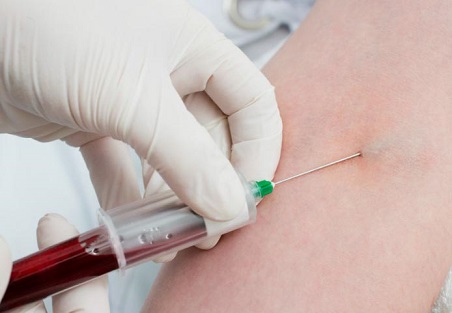Malaysian study finds that TIMPs can be used as biomarkers in predicting atherosclerosis and coronary artery disease
Nikhil Prasad Fact checked by:Thailand Medical News Team Aug 05, 2024 8 months, 3 weeks, 13 hours, 54 minutes ago
Medical News: Researchers have long sought reliable biomarkers to predict the development and progression of atherosclerosis and coronary artery disease (CAD). A recent systematic review conducted by a team from various Malaysian institutions sheds light on the role of Tissue Inhibitors of Metalloproteinases (TIMPs) in this context. This
Medical News report delves into the findings of this comprehensive study, providing insights into the potential of TIMPs as biomarkers.
 Malaysian study finds that TIMPS can be used as biomarkers in predicting
Malaysian study finds that TIMPS can be used as biomarkers in predicting
atherosclerosis and coronary artery disease
What Are TIMPs?
TIMPs are a group of endogenous proteins that regulate matrix metalloproteinases (MMPs), enzymes responsible for remodeling the extracellular matrix. The four primary TIMPs - TIMP-1, TIMP-2, TIMP-3, and TIMP-4 - play crucial roles in maintaining the balance between matrix degradation and synthesis. This balance is vital for tissue homeostasis, and its disruption can lead to various pathological conditions, including atherosclerosis.
The Study's Approach
The systematic review, which followed PRISMA guidelines, analyzed data from eleven studies sourced from databases such as Web of Science, Scopus, Ovid, and PubMed. The studies spanned a decade (2014 to January 2024) and included both cohort and case-control designs, involving subjects with varying degrees of CAD.
The researchers from Universiti Kebangsaan Malaysia, the National Defense University of Malaysia, Universiti Teknologi MARA, and Hospital Canselor Tuanku Muhriz, among others, aimed to clarify the association between TIMPs and atherosclerosis. This article discusses their methodology, findings, and implications for future research and clinical practice.
Key Findings
Positive Associations
Among the eleven studies reviewed, six indicated a positive correlation between higher TIMP levels and increased atherosclerosis risk. This suggests that elevated TIMP levels could be a response to heightened MMP activity, which is often associated with plaque instability and progression in atherosclerosis.
Contradictory Results
Interestingly, four studies reported that lower TIMP levels were linked to higher CAD risk. One study found no significant association between the TIMP-2 G-418C polymorphism and CAD, highlighting the complexity of the relationship between TIMPs and cardiovascular diseases.
Meta-Analysis Insights
A meta-analysis of two studies revealed that TIMP-2 could predict major adverse cardiovascular events (MACEs), with a hazard ratio (HR) of 1.42 (95% CI: 1.16 - 1.74; p < 0.001). This reinforces the potential of TIMPs as biomarkers for adverse cardiovascular outcomes.
The Role of TIMPs in Atherosclerosis
TIMPs regulate MMPs, which are crucial in the pathogenesis of atherosclerosis. MMP
s degrade extracellular matrix proteins like collagen and elastin, contributing to plaque instability and cardiovascular events. By inhibiting MMP activity, TIMPs help maintain the structural integrity of the arterial walls.
TIMP-1
TIMP-1, in particular, has been extensively studied. Elevated levels of TIMP-1 were found to be associated with larger infarct sizes and impaired left ventricular function post-STEMI. TIMP-1's role extends beyond MMP inhibition, influencing various cellular processes and contributing to tissue repair and remodeling.
TIMP-2
TIMP-2 has shown promise in reducing smooth muscle cell proliferation and macrophage infiltration into plaques. Its decreased levels in advanced atherosclerotic lesions suggest its protective role against plaque progression and instability.
TIMP-3
Unique among the TIMPs, TIMP-3 is bound to the extracellular matrix and inhibits a broad range of proteases. It plays a critical role in regulating inflammation and maintaining tissue integrity, making it a potential therapeutic target for atherosclerosis and related conditions.
Study Limitations and Future Directions
While the review provides valuable insights, it also highlights the need for further research. The studies reviewed had varying methodologies, sample sizes, and patient populations, leading to some inconsistencies in the findings. Larger-scale human studies, coupled with in vitro and in vivo investigations, are necessary to fully elucidate the role of TIMPs in atherosclerosis and CAD.
Moreover, the relationship between TIMPs and MMPs is complex, and the TIMP/MMP ratio may offer more nuanced insights into disease progression. Future research should explore this ratio and other potential genetic contributors to CAD.
Conclusion
The systematic review underscores the significance of TIMPs in the context of atherosclerosis and coronary artery disease. Elevated levels of TIMPs, particularly TIMP-1 and TIMP-2, are associated with disease progression and adverse cardiovascular outcomes. However, the relationship is complex, with some studies indicating lower TIMP levels linked to higher CAD risk.
Further research is needed to establish standardized methodologies and validate TIMPs as reliable biomarkers for early diagnosis and therapeutic interventions in atherosclerosis.
The study findings were published in the peer-reviewed journal: Diseases.
https://www.mdpi.com/2079-9721/12/8/177
For the latest on atherosclerosis and coronary artery disease, keep on logging to Thailand
Medical News.
Read Also:
https://www.thailandmedical.news/news/health-news-japanese-study-finds-that-natto-consumption-suppresses-atherosclerotic-plaque-progression
https://www.thailandmedical.news/news/breaking-medical-news-study-discovers-that-memory-cd8-t-cells-causes-atherosclerosis-in-the-aged-by-promoting-plaque-buildup-of-the-arteries
